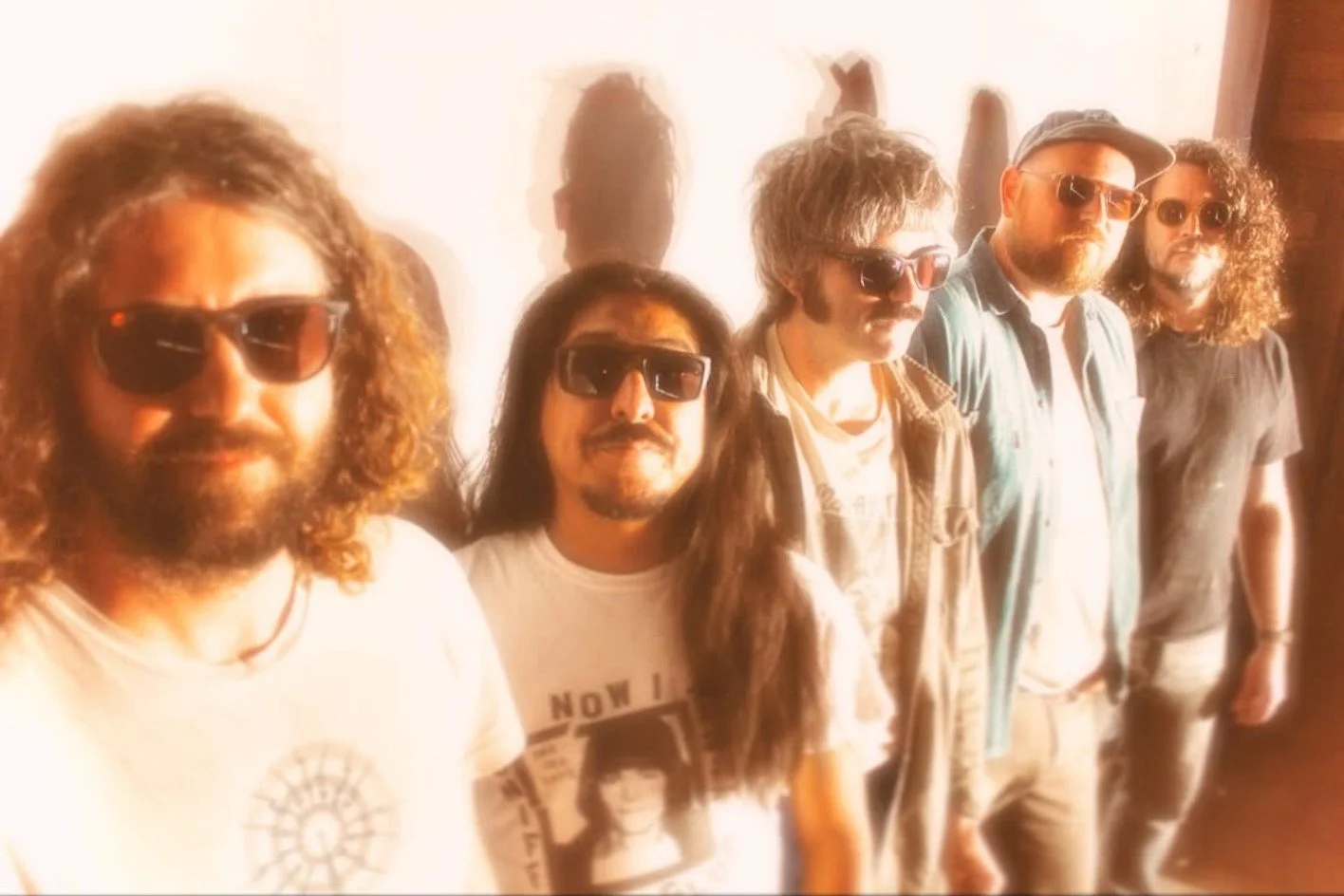Self-Titled Sunjammer Album Resists AI Homogenization Through Analog Practices
Sunjammer’s new album arrives like a long exhale of analog conviction in a digital era where AI slop continues to clog the feed and scrub so much new music of its human fingerprints.
The self-titled record was tracked live to tape at Good Medicine in San Antonio, Texas, with Justin Morris, and finished by Joshua Bloodsworth. Resident multi-instrumentalist John Dailey laid down keyboard while the studio’s vintage Hammond organ emerges throughout the record as a recurring motif. Eddie Vasquez of the free jazz group, The Whale, dropped by the studio long enough to thread in a few saxophone lines. True to its format, the often-heard tape hiss, clicks, incidental noise, and abrupt song endings are part of the albums vocabulary.
Lyrically and emotionally, Sunjammer reads like the diary of a disgruntled man scanning the world for scraps of magic. He or they or us is self-aware, frustrated, weary with responsibility, but still tender enough to keep searching for prosaic miracles.
The album opens with “I Want to Quit” and “Lunch Break,” working-class anthems built from the language of everyday exasperation. These songs turn toward familiar vices to break the monotonous curse of life’s machinery. They mutter the things people think but rarely say aloud, such as wanting to quit your job, your habits, your cycles, and the places where you feel stuck. Burnout is confronted with blunt honesty that needs no metaphor: “Depression has become a commodity” and “40-hour week made me a stranger in my own life.”
The last time I saw them live, Sunjammer played with their backs to the audience, facing each other instead, as if performing only for themselves. Whether that’s intentional or not, the album carries that same intimacy. These songs sound like private thoughts you were never meant to hear but happened to overhear at the Lonesome Rose that evening.
Photo courtesy of Sunjammer
The mood shifts with “New Bird,” which floats in like a breeze through an open window. Its wandering bright guitars and cosmic curiosity about the mysteries of nature provide a dissociative reprieve after the lyrical heaviness of the earlier tracks. The lightness carries into “Not Yet,” which feels like a sunny crossfade between a vintage Chicano soul and warm Rubber Soul-era Beatles guitars.
“Real One” and “Soul 69” dive into intense psychedelic instrumentation, each with its own style. “Soul 69” flows in a waltz-like cadence, while “Real One” strides confidently along a steady rythm. Both songs let the band stretch into loose, expressive jams before grounding themselves with lyrical confessions about desire, love, and sex.
“Yonder,” one of the album’s contemplative pillars, feels spiritually aligned with Lynyrd Skynyrd’s recurring themes of liberation and loneliness. It wonders what might lie beyond the horizon of the life these men feel trapped in.
Perhaps the most intriguing track, “Beat Down,” sounds like it was rescued from a dusty cassette left too long in a glove compartment. Its warped quality creates a temporal dislocation, as if the band’s most exhausted version of themselves has been abandoned somewhere years behind them.
“Step Out of Line” marks the album’s breaking point. The band breaks into a krautrock climax before coming back down to ludicity. “A razor to the wrist, it doesn’t have to end like this,” the band sings, confronting despair directly before pivoting toward possibility. It’s the emotional thesis of the record: acknowledge the dark, but don’t feed it. Choose something else. Interrupt the cycle before the cycle consumes you.
Throughout the album, fragments of new songs trail behind the ends of tracks, only to end abruptly. The stutter could be a fluke, but the sense of restless disorientation mirrors the stir-crazy psyche it documents. That whoever this album is about is on the edge of change but not yet changing, pacing rooms, driven by compulsions yet paralyzed by ruminating thoughts.
“As a side note, the album’s texture reminds me of working with them on a Studio E stream in 2021, when the whole world was restless. Bloodsworth and I brainstormed ways to shape their set visually. He suggested a late-night living room vibe with scarves over lamps. We built on that idea and added an ocean-wave projector that washed the band in psychedelic light. That sense of organized chaos fits this record perfectly.”
Visually, Sunjammer extends its analog worldview. Milton Holbrook of San Antonio Rose Tattoo hand-painted the album cover, a craft that feels increasingly endangered in an era of ChatGPT-generated artwork. With Tall Texan Records pressing the album to vinyl, the band finally holds the physical artifact they’ve spent a decade pursuing.
“Persistence pays; streaming services do not.” – Sunjammer
To purchase the record, catch them in person on November 29 at Lighthouse Lounge.


